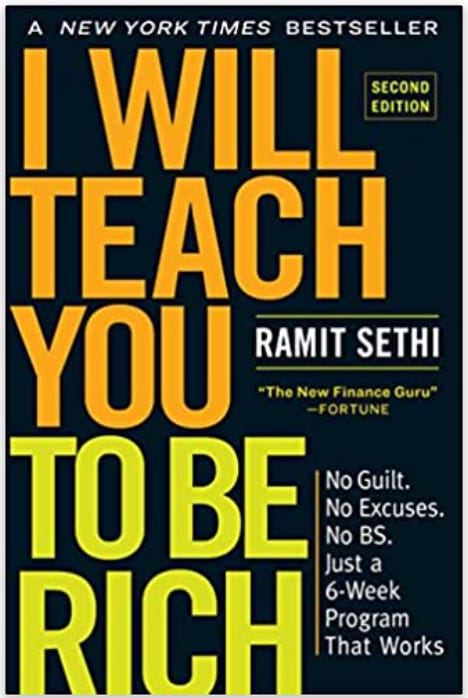How reframing your mental frameworks can help you increase your wealth
#003 Building a library of mental models with Charlie Munger and some money wisdom
There is a ton of free resources online on how to build wealth, how to invest, how to go on a diet, how to get fit……yet we all still struggle to stick to healthy habits and we get lost in the execution.
We often overestimate our will power and that’s why we fall short. At the core of those good or bad behaviors lie our mental frameworks. And neuroscience has proven us that we can reframe our thinking pattern and behaviors.
One of the concepts that stuck with me when studying the king Charlie Munger (Warren Buffet partner in crime!) is the importance of building a library of mental models – “thinking tools” that will guide our perception and our behavior.
Charlie Munger is one of the greatest mind who marked the 20th century. He’s known for using “mental models” brilliantly. Charlie believes that avoiding stupidity is more important than the pursuit of excellence.
“You have a moral duty to make yourself as non-ignorant and non-stupid as possible,” he says.
And the most effective ways to collect these "tools" is by learning from others, their choices and their errors (of judgment in particular) - which makes learning not only more entertaining but also memorable.
Charlie explains how he became successful thanks to this mindset :
1/ "Invert, always invert." as advised by the great algebraist Jacobi.
2/ it’s much easier to collect poor judgment “easy-to-find stupidity” and think about ways to avoid such outcomes rather than looking for good judgment
Having a library of tools to apply to our life, our career and our wallet can be an extremely powerful tool. Here are 3 examples to pimp your wallet.
1/ Don’t focus on the minutiae but rather on the priceless questions in your life ?
In short, you want to train your brain to ask the million dollars questions versus the 3 cents questions. For example, we discuss how bad inflation is on the price of our daily coffee but we don’t discuss how bad is our asset allocation …..
The idea is to stop focusing on small questions. It’s like the so called “latte factor” - saving the equivalent of your coffee everyday won’t make you rich. And a few cents increase on tomatoes won’t change much in a lifetime, but not investing or not doing it the right way will.
2/ Accept to change lenses when it comes to spending money
One of our most common mistakes when it comes to money is not to change our perception of it while our income or overall situation changes. If you were raised in scarcity and become a millionaire, you’ll have hard time changing your behavior towards money and might keep the same “unconscious decision-making script” as before for every purchase.
As a kid we might count in 5 dollars bills, as a teenagers we might count in numbers of pain au chocolat a particular amount of money will get us and as an adult it could be the number of Chipotle meal something represents….In an ideal and healthy relationship with money, all of this should be adjusted as our wealth grows but it’s not always the case.
We tend to forget to change our lenses and perception of value as we grow our bank account.
3/ The 10 Year bucket list framework
According to Rami Sethi (link of his book), most people should learn how to spend and most of us have hard time visualizing how we can spend our money to live our rich lives.
Here are 2 key questions to consider to reframe your money story :
1/ What is your number and do you think you have enough ? (you might say no and it’s okay ; )
2/ What could we / I do in 10 years ? And what doing it will feel like?
For example, if you want to take a one year career break, reverse engineer this goal and calculate how much you should save monthly to get there in 10 years. Open a dedicated account, set an automated payment and start saving for this goal.
3/ What is your worry free number ?
This is the number below which you don’t need to tell your partner or you don’t need to question anything. If it’s 50 usd - you won’t question any spendings below 50 usd. It could become 500 usd depending on your financial situation. The goal is to have a worry free number to go about your everyday spendings.
For the curious out there, here are some interesting read on Charlie Munger such as his most successful speech on how to guarantee a life of misery and how he applied the concept of inversion his whole life.
A book I recommend as well from Rami Sethi - if there’s one book to read, this is the one. It’s accessible and relatable regardless of where you are in your financial journey. Here is the link.
“To a man with only a hammer every problem looks pretty much like a nail.” Man-with-a-hammer tendency does not exempt smart people.
“It is remarkable how much long-term advantage people like us have gotten by trying to be consistently not stupid, instead of trying to be very intelligent.”
“You need to keep raw irrational emotion under control. You need patience and discipline and an ability to take losses and adversity without going crazy. You need an ability to not be driven crazy by extreme success.”







